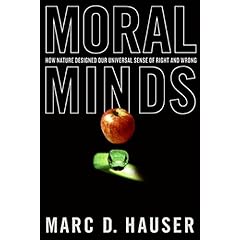For the last half a century, the Catholic Church has recognized the validity of the theory of evolution as a way to account for the diversity of life on earth. Pope Pius XII started things off, I think, with the statement "The Teaching Authority of the Church does not forbid that, in conformity with the present state of human sciences and sacred theology, research and discussions, on the part of men experienced in both fields, take place with regard to the doctrine of evolution, insofar as it inquiries into the origin of the human body as coming from pre-existent and living matter." In 1996 Pope John Paul II endorsed this view, calling evolution 'more than just a hypothesis' and stating that faith and evolution were compatible.
The position of Pope Benedict XVI, however, has been more difficult to decipher. At World Youth Day back in April, he stated that
"science supports a reliable, intelligent structure of matter, the design of Creation" and then yesterday stated that according to such theories derived from Charles Darwin's work, the universe is "the random result of evolution and therefore, at bottom, something unreasonable." Much has been made of these comments in the media and around the science blogs, but I don't think its as much a departure from earlier positions as one might think. In particular, it seems the pope doesn't have a problem with the idea of common ancestry. When he was Cardinal Joseph Ratzinger, he presided over the church's International Theological Commission, which stated that 'since it has been demonstrated that all living organisms on earth are genetically related, it is virtually certain that all living organisms have descended from this first organism.' "
Going a little beyond the soundbites, its clear that the Pope's problem is not with Darwinian evolution, but with neo-Darwinian evolution and specifically with the idea that evolution is an unguided process with random origins and random results. In this he is on the same page with Cardinal Christoph Schonborn, a former student and close advisor. In a NYT's piece a while back, Schonborn wrote that "Evolution in the sense of common ancestry might be true, but evolution in the neo-Darwinian sense -- an unguided, unplanned process of random variation and natural selection -- is not."
The Catholic position here is an entirely reasonable one from both a religious and scientific perspecitive. From the religious perspective, it recognizes that nothing in Christian teaching is incompatible with the idea of common ancestry. However, there is a very real incompatibility between Christian teaching and the idea that the diversity of life on earth and man's central role in it are the result of random (and therefore purposeless) chance. The creation stories in Genesis tell us that the earth and man were brought into being intentionally and with purpose in mind. The Church is right to defend this. From the scientific perspective (and this is more controversial), I think skepticism about the randomness of evolutionary change is warranted, mostly because we simply do not understand all of the mechanics of genetic change and the randomness of these changes is largely just a basic assumption. It may turn out that genetic changes are constrained in some ways we do not currently understand, greatly reducing the number of possible outcomes from 'random' mutation.
I wanted to point all of this out to counter some of posts out there like this one at
Pharyngula which portray the pope's statements as being fully anti-evolution or stories like
this one or
this one which take his words as an endorsement of Intelligent Design. So far, at least, that's not the case. As with all things, to get to the root you have to dig below the surface.


